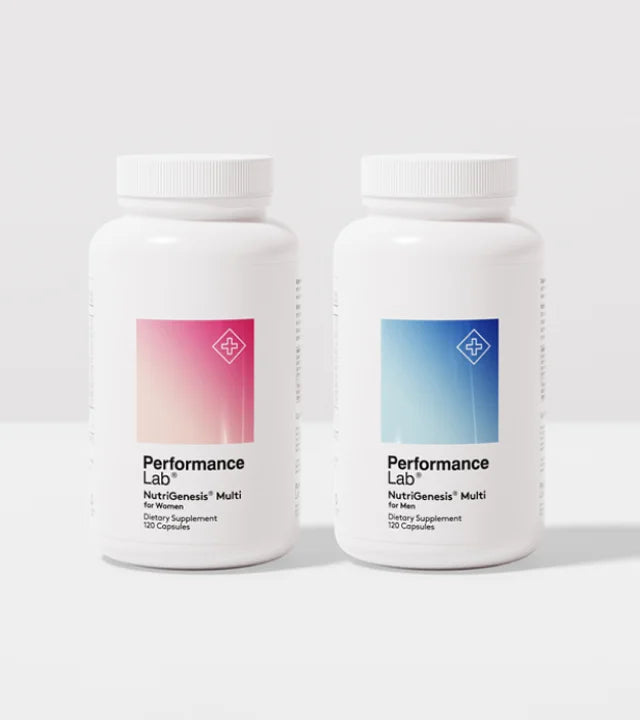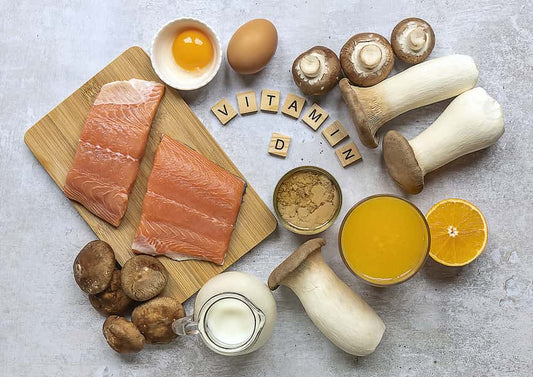It’s no major surprise that insufficient intake of any essential nutrient would lead to a number of health problems, including difficulty losing weight.
To avoid this, it’s highly recommended to consume a balanced, varied diet to ensure sufficient intake of all key nutrients.
Without these nutrients, our bodies would simply struggle to function optimally, which could negatively impact our overall health.
Weight gain is often the result of a positive energy balance, where calorie intake exceeds expenditure, and addressing nutrient intake, including zinc, is one way to help manage this.
Zinc is just one fundamental nutrient needed for optimal function, playing many significant roles in the body.
Though, does it help with weight loss?
Read on to find out!
Key Takeaways
- Zinc supports metabolism, hormone regulation, and appetite control — all important for weight management.
- Deficiency in zinc is linked with impaired insulin sensitivity and difficulty losing weight.
- Supplementing with zinc may aid fat loss efforts, but only when paired with a balanced diet and exercise.
- Zinc is a supportive nutrient, not a standalone solution for weight loss.
Looking for a quality zinc supplement?
What is the Role of Zinc in the Body?

Zinc is an essential mineral involved in many critical biological processes in the body. Zinc acts as a co-factor for numerous enzymes and supports gastrointestinal functions, which are essential for digestion and nutrient absorption. Its roles include:
-
Making new cells and enzymes
-
Processing carbohydrate, fat, and protein from food
-
Wound healing (1)
-
Regulating various physiological processes such as energy balance and immune response
Zinc is typically supplemented to reduce the frequency of illness, support optimal testosterone levels, support brain function, and support the immune system.
How to Increase your Dietary Intake of Zinc
Good sources of dietary intake of zinc include:
-
Meat
-
Shellfish
-
Dairy foods
-
Bread
-
Cereals - such as wheatgerm. (2)
Zinc Deficiency
Zinc deficiency can lead to a number of health problems, including impairing growth in children, mental fatigue, depression, and skin abnormalities. Pregnant women, children, and people with chronic illness or who struggle to absorb zinc are most at risk of deficiency.
Zinc cannot be stored in the body so it must be replaced by diet or supplementation.
Zinc Deficiency Warning
The World Health Organization cites zinc deficiency as a significant contribution to global disease. (3)
Micronutrient deficiencies, including zinc deficiency, are common in certain populations and can contribute to metabolic and inflammatory issues.
It is also thought that low levels of zinc due to diabetes can worsen insulin resistance, which can cause further issues with weight management and blood sugar levels.
Symptoms of Zinc Deficiency

To add to what I touched on in the last section, symptoms of zinc deficiency may include:
-
Getting sick often
-
Slower growth than expected in children
-
Diarrhea in children
-
Lack of energy
-
Irritability
-
Hair loss or thinning hair
-
Brittle nails or nail discoloration
-
Loss of appetite
-
Loss of smell and taste
-
Low sperm count in men
-
Rashes
-
Wounds that are slow to heal. (4)
Recommended Daily Dosage
The recommended daily intake of zinc is around 11mg for men, and 8mg for women, increasing to 11mg in pregnancy and 12mg while breastfeeding. (2)
Warning
If you are pregnant or could be pregnant, please see a doctor for advice on prenatal vitamins.
While you should be able to get most of your daily intake through diet alone, there may be additional benefits to supplementation, including bridging any gaps in zinc insufficiencies.
Let’s explore!
Benefits of Zinc Supplementation

Many of the benefits of supplementing with zinc, or increasing dietary intake, would largely depend on your zinc status to begin with, ie, the levels of zinc in the individual. Adequate zinc intake is important for metabolic health and weight management.
Research suggests that in the case of low zinc levels, supplementation would bring levels closer to normal. (3)
Zinc supplementation may also help:
-
Reduce the duration of a common cold (but not prevent it) (5)
-
Improve symptoms of depression, based on research showing depression is linked to lower levels of zinc. More research is needed on this.(6)
-
Provide some relief from acne (zinc sulphate in particular) (7)
-
Promote antioxidant activity
-
Enhance cognitive health and mood
-
Maintain good digestion
-
Men’s health
-
Support regulation of inflammation and metabolic function through dietary zinc intake. (8)
To read more about “Zinc for Men” and “Zinc Benefits for Women”, check out our linked guides!
Choosing a high-quality zinc supplement can help individuals meet their recommended zinc intake, especially if dietary sources are insufficient. We recommend Performance Lab Zinc.
Having discussed the many benefits of zinc supplementation, let’s discuss the potential benefits on weight loss specifically.
Zinc & Weight Loss: Does it Help?
 Several randomized controlled trials, including double blind placebo controlled studies, have investigated the effects of zinc supplementation on weight loss and metabolic health.
Several randomized controlled trials, including double blind placebo controlled studies, have investigated the effects of zinc supplementation on weight loss and metabolic health.
There's good news!
Effect of Zinc Supplementation on Body Weight and More
Among obese subjects in particular, zinc supplementation has been shown to:
-
Reduce inflammatory markers
-
Reduce insulin resistance
-
Reduce appetite
-
Reduce anthropometric measurements (weight, height, BMI or Body Mass Index, body fat etc...). (9)
Studies have shown that obese individuals tend to have lower zinc levels circulating around the body.
In one study, 60 obese participants were randomly assigned to either a zinc supplementation group or to a placebo group. The study measured changes in fasting blood glucose, lipid profile biomarkers, and triglyceride levels, as well as serum zinc levels, BMI, and body weight.
Upon supplementation, it was found that zinc improved BMI and body weight, as well as triglyceride concentration, the latter important for heart health. (10)
The study suggests zinc may be an effective therapy for overweight and obese individuals, though further research is welcome. (11)
A second study of obese girls focused on a nutritional orientation program, encouraging participants to increase their intake of fruits, dairy and meats - important dietary sources of zinc. The intake of zinc didn't alter throughout the four-month study but all participants still lost body fat mass.
In addition, the levels of zinc within red blood cells increased while levels within saliva and urine showed a significant decrease - meaning the diet helped to redistribute their supply of zinc. The study authors suggest this dietary intervention and zinc redistribution was responsible for the weight loss. (12)
Effects of Zinc on Leptin and Appetite Regulation
The leptin system in the body determines satiety, telling the body when to reduce appetite and achieve energy balance. Essentially telling you when to stop eating because you're full.
Primarily released by adipose tissue (body fat), there is some evidence that zinc may influence leptin production, leptin regulation, leptin synthesis, and serum leptin levels. All of which are important for appetite and energy balance.
While no-one yet knows the exact manner in which zinc impacts leptin, studies show that obese women and men have low levels of zinc but high leptin levels, suggesting some sort of correlation.
High leptin levels in obese subjects may trigger leptin resistance - where the brain no longer reacts to the signal that they are full. As such, you do not want leptin levels to increase any further. (13)
Clinical trials in this regard are not consistent. One meta-study analysing zinc supplementation and leptin levels concluded that supplementation didn't alter serum leptin levels in most people, but there were exceptions in women. Specifically in studies that lasted longer than six weeks.
In those studies, zinc supplementation resulted in a decreased circulating leptin level among women, helping to avoid leptin resistance.
Zinc may therefore help reduce body weight by improving leptin resistance and modulating neuropeptide y gene expression, especially among women. (14)
Zinc therefore appears to help regulate serum leptin concentrations, a hormone that plays a key role in appetite regulation and energy expenditure. By supporting healthy leptin levels, zinc may help reduce food intake and promote weight loss.
More research needs to be done to confirm this, though the research appears promising so far.
Zinc and your Metabolism
Zinc concentration plays a pivotal role in supporting healthy metabolism, influencing several key biological processes that are closely linked to weight management and overall metabolic health.
One of the most important functions of zinc is its involvement in lipid metabolism, glucose uptake, and the regulation of insulin secretion and insulin sensitivity.
These processes are essential for maintaining a healthy body weight and reducing the risk of metabolic risk factors such as insulin resistance and impaired glucose tolerance.
Lipid Metabolism and Cholesterol
Zinc administration has been shown to lower serum lipids, including triglycerides and harmful LDL cholesterol, while increasing beneficial HDL cholesterol.
These changes in lipid profile can help reduce the risk of cardiovascular disease, a common concern for individuals with obesity or metabolic syndrome. (15)
Tackling Insulin Resistance
Insulin is a hormone that we can't live without. Think of it like a key that allows sugar (glucose) into a cell in order to use it for energy to fuel your body.
If this essential function is impaired, it can lead to potentially life-threatening consequences. The body can produce too little insulin, or too much, or the cells don't respond to insulin in the way they should (known as insulin resistance).
Zn supplementation among obese people has shown an improvement in insulin sensitivity. (16)
In summary, zinc plays a critical role in metabolic health by supporting lipid metabolism, insulin sensitivity, and appetite regulation.
The effect of zinc supplements on body weight, body mass index, and metabolic risk factors make it a promising option for those looking to manage their weight and improve overall metabolic function.
As always, further research is needed to determine the optimal dosage and duration of zinc supplementation for the best therapeutic outcomes.
Key Takeaways
Zinc is essential for carbohydrate and fat metabolism. Deficiency can impair insulin sensitivity and make weight management harder.
Supplementing with Zinc
Taking into account all the supposed benefits of supplementing with zinc, you’re probably wondering where to find it and what to look for in a zinc supplement.
For overall health, wellbeing, and “covering the bases”, you have two options - taking zinc as a standalone supplement, ideal if you suspect you may be low in this crucial mineral.
Or taking it as part of a multivitamin supplement. A multivitamin would provide not just the recommended dose of zinc, but also all the other key nutrients needed for optimal functioning of the body.
We can recommend both...
Performance Lab Zinc

Performance Lab Zinc is a standalone zinc supplement that offers 15mg of NutriGenesis zinc - more than enough to meet your daily needs, but well under the 40mg Upper Tolerable Limit for zinc. (2)
NutriGenesis is our special manufacturing process that produces nature-identical nutrients which are easier to absorb. Simply take one capsule a day with food.
As with all our other products, Performance Lab Zinc has a clean label - it's vegan-friendly, GMO-free, non-irradiated, free of soy and gluten, and free of synthetic additives and preservatives.
Performance Lab NutriGenesis Multi for Men or Women
If you’re looking for an all-round multivitamin to boost your general health, as well as potentially support your weight loss goals, we highly recommend NutriGenesis Multi.
It includes 15mg of zinc for the men's formula, and 10mg for the women's formula (because men also benefit from zinc for the production of testosterone).
Some of the key benefits of NutriGenesis Multi include:
-
Providing foundational nutritional support for healthy whole-body biological performance
-
Supporting daily vitality and long-range overall health
-
Innovative technology
-
Gender-specific customization and hormonal support
The only multi I’ve used and noticed more energy and better overall wellbeing!Jerrold N

Weight Loss: The Bottom Line
Getting enough zinc in your diet may have a beneficial effect on weight loss if you’re overweight or obese. Having said that, zinc does not work that simply.
The majority of your weight loss results would stem from making changes to your diet and lifestyle. As we know, your total calorie intake vs total calorie expenditure determines whether you lose weight, which is the principle of fat loss.
Supplementing with zinc and boosting your dietary intake of zinc-rich foods would only further complement this principle - without it, it will not provide the desired results.
Additionally, boosting your dietary intake of zinc would typically result in an increased intake of protein and some vegetables, which would help boost fullness and energy expenditure, thus having an indirect impact on weight loss.
Key Takeaway
Zinc supplementation can be helpful for weight control, but it works best when paired with diet, exercise, and other essential nutrients.
Take-Home Message
Zinc is an essential mineral needed for many key biological processes in the body, including making new cells and enzymes, and wound healing.
Supplementing with zinc can provide many health benefits such as reducing the duration of a cold, promoting antioxidant activity, and maintaining good men’s health.
There appears to be some promising research so far around the benefits of supplementing with zinc for weight loss, with a few studies suggesting it may be a helpful supplement for those who are overweight and obese, where zinc levels are typically found to be low.
While there is promising research in this area so far, more studies must be done to confirm the effect of zinc supplementation on weight loss.
There is no harm in supplementing with zinc, particularly as part of a multivitamin, however, do not underestimate the importance of diet and exercise for weight loss.
References
- Lin, P. H., M. Sermersheim, H. Li, P. H. U. Lee, S. M. Steinberg, and J. Ma. 2017. “Zinc in wound healing modulation.” Nutrients 10 (1): 16. https://doi.org/10.3390/nu10010016.
- National Institutes of Health, Office of Dietary Supplements. n.d. “Zinc.” https://ods.od.nih.gov/factsheets/Zinc-HealthProfessional/.
- Baddam, S., L. Maxfield, and S. Shukla. 2025. “Zinc deficiency.” In StatPearls [Internet]. Treasure Island, FL: StatPearls Publishing. https://www.ncbi.nlm.nih.gov/books/NBK493231/.
- Cleveland Clinic. n.d. “Zinc deficiency.” https://my.clevelandclinic.org/health/diseases/zinc-deficiency.
- Nault, D., T. A. Machingo, A. G. Shipper, D. A. Antiporta, C. Hamel, S. Nourouzpour, M. Konstantinidis, E. Phillips, E. A. Lipski, and L. S. Wieland. 2024. “Zinc for prevention and treatment of the common cold.” The Cochrane Database of Systematic Reviews 5 (5): CD014914. https://doi.org/10.1002/14651858.CD014914.pub2.
- Swardfager, W., N. Herrmann, G. Mazereeuw, K. Goldberger, T. Harimoto, and K. L. Lanctôt. 2013. “Zinc in depression: A meta-analysis.” Biological Psychiatry 74 (12): 872–878. https://doi.org/10.1016/j.biopsych.2013.05.008.
- Tolino, E., N. Skroza, A. Mambrin, I. Proietti, N. Bernardini, V. Balduzzi, A. Marchesiello, M. Di Fraia, S. Michelini, and C. Potenza. 2021. “An open-label study comparing oral zinc to lymecycline in the treatment of acne vulgaris.” The Journal of Clinical and Aesthetic Dermatology 14 (5): 56–58.
- Healthline. n.d. “Zinc supplements: Benefits, side effects, and recommended dosage.” https://www.healthline.com/nutrition/zinc-supplements.
- Khorsandi, H., O. Nikpayam, R. Yousefi, et al. 2019. “Zinc supplementation improves body weight management, inflammatory biomarkers and insulin resistance in individuals with obesity: A randomized, placebo-controlled, double-blind trial.” Diabetology & Metabolic Syndrome 11: 101. https://doi.org/10.1186/s13098-019-0497-8.
- Mayo Clinic. n.d. “Triglycerides: Why do they matter?” https://www.mayoclinic.org/diseases-conditions/high-blood-cholesterol/in-depth/triglycerides/art-20048186.
- Payahoo, L., A. Ostadrahimi, M. Mobasseri, et al. 2013. “Effects of zinc supplementation on the anthropometric measurements, lipid profiles and fasting blood glucose in healthy obese adults.” Advances in Pharmacological Bulletin 3 (1): 161–165.
- Freire, S. C., M. Fisberg, and S. M. Cozzolino. 2013. “Dietary intervention causes redistribution of zinc in obese adolescents.” Biological Trace Element Research 154 (2): 168–177.
- Baltaci, A. K., and R. Mogulkoc. 2012. “Leptin and zinc relation: In regulation of food intake and immunity.” Indian Journal of Endocrinology and Metabolism 16 (Suppl 3): S611–S616. https://doi.org/10.4103/2230-8210.105579.
- Khorshidi, M., M. Zarezadeh, A. Sadeghi, A. Teymouri, M. R. Emami, H. Kord-Varkaneh, N. Aryaeian, J. Rahmani, and S. M. Mousavi. 2019. “The effect of zinc supplementation on serum leptin levels: A systematic review and meta-analysis of randomized controlled trials.” Hormone and Metabolic Research 51 (8): 503–510. https://doi.org/10.1055/a-0955-6662.
- Ranasinghe, P., W. S. Wathurapatha, M. H. Ishara, R. Jayawardana, P. Galappatthy, P. Katulanda, and G. R. Constantine. 2015. “Effects of zinc supplementation on serum lipids: A systematic review and meta-analysis.” Nutrition & Metabolism 12: 26.
- Martins, M. P. S. C., A. S. S. S. Oliveira, M. C. C. Martins, V. B. L. Carvalho, L. A. R. L. Rodrigues, D. D. R. Arcanjo, M. A. P. dos Santos, J. S. R. Machado, M. de M. Rocha. 2022. “Effects of zinc supplementation on glycemic control and oxidative stress in experimental diabetes: A systematic review.” Clinical Nutrition ESPEN 51: 28–36.
















